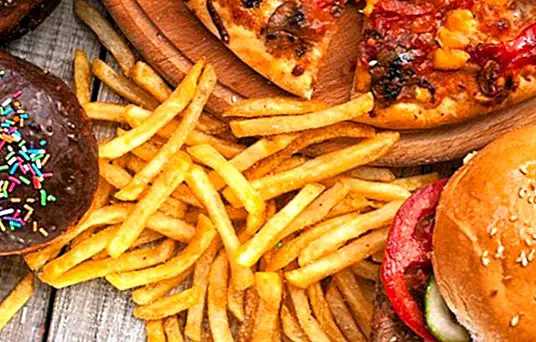Pregnancy week 3
Third week of pregnancy. The most important:
You are in the third week of pregnancy. !! Congratulations!! You have already conceived your baby although you still do not know it.
Week 3 of pregnancy (Week 1 of pregnancy).
Do not forget to follow a varied and balanced diet, rich in foods with folic acid (green leafy vegetables and legumes), calcium (dairy and nuts), and foods rich in iron (meat).
It is still early to get a pregnancy test. There's still a week left until you realize you'll have a lack.
!! Congratulations!! After having sex during your most fertile days of this period (remember, if your menstrual cycle is regular and lasts 28 days, you have ovulated 14 days after your last menstruation, so your fertile period has been 3 days before and 3 days after the day of ovulation), a sperm has been found with your egg after a long walk and a great effort, and it has fertilized it.
A few days after fertilization the embryo begins its journey from the fallopian tube (place where it has been fertilized by the sperm) to the uterus,
In fact, on many occasions ovulation actually takes place between the end of the second week of pregnancy and the beginning of the third.

The development of the embryo in the third week of pregnancy
Once the ovum is fertilized by the sperm, its nuclei melt. It is in this nucleus that we find the genetic material of both the mother and the father. And around 20 hours after fertilization, the zygote (the fertilized cell) has begun to divide, then continue and continue to divide again and again.
In a short time after conception the future baby begins its journey from the fallopian tube to the uterus, while it continues to divide and its number of cells continues to increase. Now it has gone from a microscopic cell to a ball of cells, known as the blastocyst.
At the end of this week the embryo reaches the uterus. And how is this journey produced? Thanks precisely to small contractions that make the muscles of the fallopian tubes, in whose walls we find millions of cilia, which are small hairs that move in the same direction and that help the embryo to travel through this canal.
Progesterone, which is a hormone secreted by the ovary after ovulation, is also important during this stage, since it helps the sphincter relax, allowing the passage of the embryo to be easier between the fallopian tube and the uterus. In addition, it is essential because it increases endometrial receptivity, preparing the uterus for implantation of the embryo.

What happens in your body during the third week of pregnancy?
It is still early for great changes to take place in your body, especially the most visible ones. However, it is possible that begin to emerge some of the early symptoms of pregnancy due mainly to the different hormonal alterations that begin during the first days of pregnancy. And what are those symptoms? The most common are the following:
- Sensitivity in the breasts, with the appearance of some pain and an increase in temperature.
- Fatigue. They increase the desire to sleep.
- Mood changes and / or irritability.
- Greater perception of odors.
- Greater salivation and alteration of taste.
- Increased desire to urinate.
Therefore, although some of these may appear first symptoms of pregnancy, the most common is that at the moment you do not notice any drastic or obvious change in your body.
In fact, we must bear in mind that there is still a week to get your period. So, if your pregnancy has not been planned, you probably do not even think you might be pregnant. This article is published for informational purposes only. It can not and should not replace the consultation with a Physician. We advise you to consult your Trusted Doctor.



